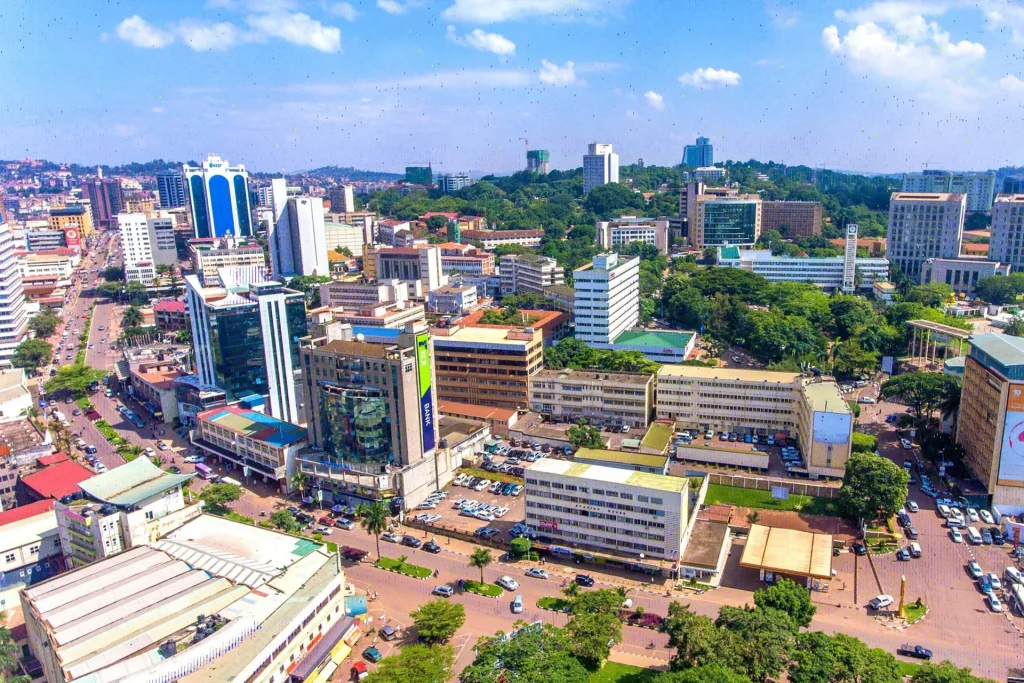
- Knight Frank: Grade A Office Rents Across Africa Jump By As Much As 15%
- Average monthly rental rates for Grade A offices increased by 15-20% in Lilongwe and Blantyre.
- In Cairo, green office rental premiums have increased by 10.7% year-on-year.
- Co-working model gaining traction in Kenya.
Reflecting global trends and Africa’s rapidly expanding working-age population (projected to grow by nearly 70% by 2035, according to the World Bank), the adoption of flexible and shared workspaces is increasing, according to global property consultant Knight Frank’s Africa Office Market Dashboard H2 2024.

Mark Dunford, CEO-Knight Frank Kenya, explained, “The global co-working market is experiencing rapid growth and was estimated to have reached 5 million workers at the end of last year.”
“On the continent, with the SME sector continuing to form the backbone of economic growth, as well as the current risk aversion of global firms, serviced office providers are well positioned to capitalise on the demand for smaller, ‘plug and play’ space.
This space is attractive given the favourable and flexible lease terms.
This demand is prompting the expansion of creative, flexible space offerings across Africa with one local provider now present in 5 locations across Nairobi alone.”

Knight Frank says KOFISI and Workshop17 manage more than 22 locations across the continent, offering a combined footprint of approximately 60,000 sqm.
These flexible offices cater to various business needs, from startups seeking affordable office solutions to multinational corporations exploring hybrid workplace models or spaces that they can flex in and out of.

OFFICE MARKET RENTAL PERFORMANCE
Knight Frank also highlights the varied office rental performance across different countries. For instance, in Botswana, office rents for green-rated buildings in Gaborone command premiums of 30-40% compared to conventional offices, while in Cairo, green rental premiums have increased by 10.7% year-on-year, reaching approximately US$ 37 per square metre per month.
Conversely, in Zimbabwe, office rents in Harare’s CBD continue to face downward pressure, with rates ranging from US$ 5 – 10 per square metre per month, reflecting a 5% reduction at this time last year.
Boniface Abudho, Africa Research Analyst at Knight Frank, said, “While prime office rents have remained relatively stable across much of the continent, Harare’s CBD is an exception, experiencing significant rental decreases due to a substantial exodus of tenants to suburban locations.
“This migration is attributed to several factors, including ageing infrastructure, poorly maintained facilities, and a general decline in the quality and functionality of CBD offices.
In contrast, Harare’s suburban areas, including Newlands, Eastlea, Mt Pleasant, and Belvedere, have seen a marked increase in demand, driving rental appreciation of approximately 20% year-on-year.”

Knight Frank says current office rates in Harare’s suburban areas range from US$ 12 -15 per square metre per month. This shift reflects occupier preferences for modern, well-maintained office spaces with improved amenities and accessibility.
Knight Frank’s report also notes that occupancy trends across the African office markets are diverse, reflecting varying levels of demand and supply.
Cairo’s Grade A office sector, for instance, has witnessed a notable 10 percentage-point increase in occupancy, reaching an average of 90%.
 Conversely, Kampala experienced a slight 1.5 percentage-point decrease, settling at 89.6% occupancy.
Conversely, Kampala experienced a slight 1.5 percentage-point decrease, settling at 89.6% occupancy.
A consistent trend across several markets is the strong demand for Grade A offices as well as space that meets the environmental, social, and governance (ESG) considerations of businesses.
These modern, sustainable, and energy-efficient properties continue to attract significant occupier interest, often commanding a premium.

This is especially true in strategic locations within key business hubs such as Johannesburg and Nairobi. In these prime locations, Grade A office occupancies have steadily risen over the past two years, consistently exceeding 70%.










1 thought on “Knight Frank: Grade A Office Rents Across Africa Jump by 15pc”